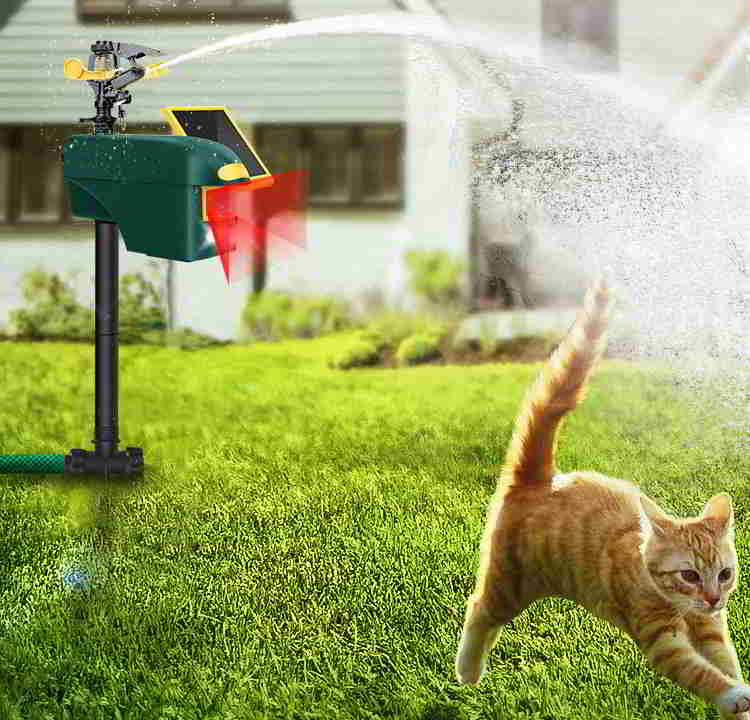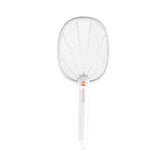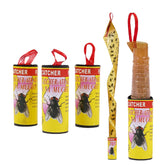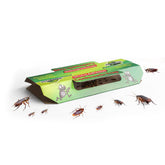.jpg)
In addition to accompanying humans, cute cats also like to take the initiative to leave fertilizers in our gardens to help our plants grow. Of course, cats leaving fertilizer is a joke. It's actually not cool at all. Since cats have a digging habit (leaving their own waste without authorization), they can also cause destructive effects on the garden, such as sleeping on plants, chewing, etc. While there's no clear evidence that a plant is immune to pesky cats on its own, there are some safety measures you can take to prevent cat misbehavior if you want to protect your garden.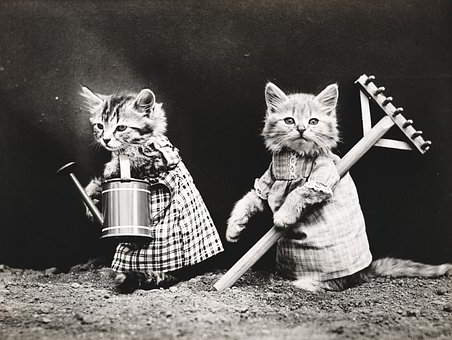
7 Types Of Cat Scarers - Which one is the best?
1. Bitter Apple Odor
The bitter apple flavored product, not so much a total repellent, is an odor suppressant, and while not rain-washing off, is great for indoor greenery, especially those expensive orchids of yours. It can prevent cats from lying on it.
2. Rose branches
Rose clippings aren't usually good for composting, but these prickly creatures will make cats think twice about traversing your cherished dahlia trellis. If you're only temporarily trying to keep cats away from an area, such as a newly vacated flower bed, you can add mulch to the branches later to make them easier to decompose in the soil.
3. Flower fence
A set of bamboo sticks in the pots/beds will effectively stop the cats from lying on top of your dwarf morning glory, and these hedges will be less visible, preventing the garden from looking like a jungle Spike trap. Cut the long bamboo poles into 25 cm long bamboo pieces, and insert them regularly in the gaps of flower beds, or window boxes, etc., where cats like to stop. This method is not very effective for plants that cats are very interested in, such as nepeta (cat grass).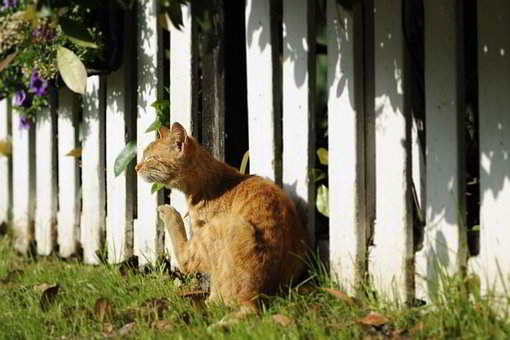
4. Pepper spray
When a cat thinks that rhododendron can improve digestion, it's time to make a big move. After all, rhododendrons, along with many other garden plants like "Baby's Smell," as well as tobaccos and lilies, are toxic to cats according to the ASPCA (American Society for the Prevention of Cruelty to Animals) and can cause a range of diseases. Gastrointestinal upset, convulsions, and even death. In this case, the pepper's pungent smell can prevent cats from approaching the above-mentioned plants. Some gardeners make their own sprays, but commercial pepper sprays will last longer due to the waxes added to the formula.
5. Smelly plants
Just like many flowers will attract cats, there are also many varieties of green plants that will keep them away. Some aromatic flowers, such as Russian sage and lavender, are not attractive to cats. Plants with spikes on flowering branches, such as crinoids, ball thistles, and tropical silver birch, are not liked by cats, and most other animals will not chew them.
6. Automatic sprinkler
What do you do when the troublesome cat isn't your own domesticated cat but a roving gang from the same neighborhood or a feral cat? A motion-sensing sprinkler that acts as your guard 24 hours a day. If you choose a product that sprays upwards, every time an animal invades, the device will be triggered to spray water. With downward spray products, it is possible to spray yourself wet when you forget to turn off the grass.